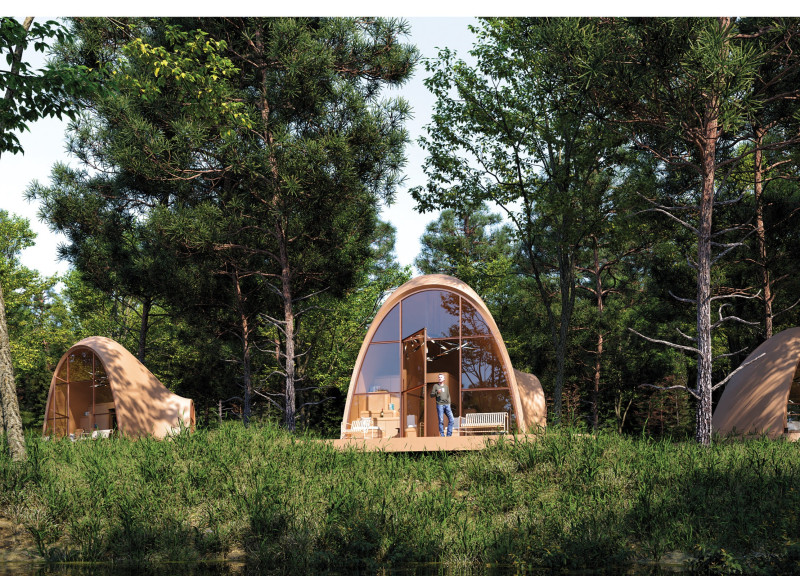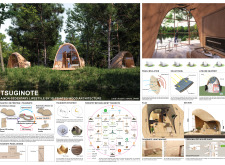5 key facts about this project
Sustainable Practices and Innovative Techniques
A key feature of the Tsuginote project is its commitment to sustainability. The use of 3D printed wood panels allows for the efficient design and construction of the structures. These panels are made from wood powder, a material that supports recycling and optimizes resource use. Additionally, the integration of insulating materials enhances the energy efficiency of the buildings. Solar panels further contribute to the project's sustainability by harnessing renewable energy for powering the facilities.
The architectural design is characterized by curvilinear shapes, contributing to both aesthetic appeal and structural performance. The organic forms are in harmony with the surrounding landscape, promoting a seamless connection with nature. The layout of the interiors prioritizes adaptability, allowing spaces to be modified based on specific user needs. Large windows are strategically placed, facilitating natural light penetration and reinforcing the connection between indoor and outdoor environments.
Modularity and Interactivity
The modular construction system implemented in Tsuginote sets this project apart from conventional designs. The smart 3D locking panel technology simplifies assembly, reducing labor and construction time while ensuring durability. This system allows for the easy reconfiguration of spaces, accommodating changing lifestyles and preferences of residents. The incorporation of lifeline equipment supports renewable energy generation, contributing to the overall sustainability of the project.
The focus on a non-sedentary lifestyle is further complemented by designated communal spaces that foster social interaction among residents. This aspect of the design encourages a sense of community, enhancing the living experience within the natural setting of Lake Chuzenji.
The Tsuginote project exemplifies a thoughtful approach to architecture, addressing contemporary challenges through innovative design and sustainable practices. For detailed insights into this architectural endeavor, including architectural plans, architectural sections, and architectural ideas, exploring the project presentation is encouraged. Doing so will provide a comprehensive understanding of the design principles and outcomes associated with Tsuginote.























